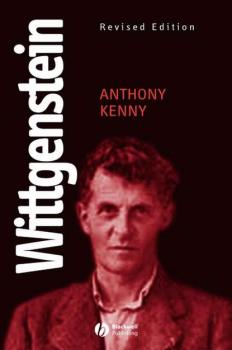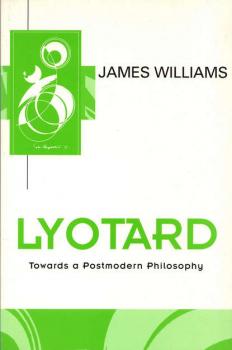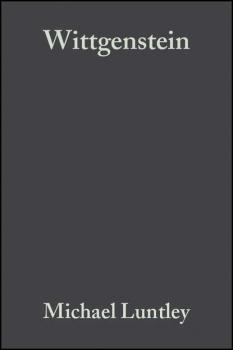ТОП просматриваемых книг сайта:
Философия
Различные книги в жанре Философия, доступные для чтения и скачиванияАннотация
The future of Europe and the role it will play in the 21st century are among the most important political questions of our time. The optimism of a decade ago has now faded but the stakes are higher than ever. The way these questions are answered will have enormous implications not only for all Europeans but also for the citizens of Europe’s closest and oldest ally – the USA. In this new book, one of Europe’s leading intellectuals examines the political alternatives facing Europe today and outlines a course of action for the future. Habermas advocates a policy of gradual integration of Europe in which key decisions about Europe’s future are put in the hands of its peoples, and a ‘bipolar commonality’ of the West in which a more unified Europe is able to work closely with the United States to build a more stable and equitable international order. This book includes Habermas’s portraits of three long-time philosophical companions, Richard Rorty, Jacques Derrida and Ronald Dworkin. It also includes several important new texts by Habermas on the impact of the media on the public sphere, on the enduring importance religion in “post-secular” societies, and on the design of a democratic constitutional order for the emergent world society.
Аннотация
John Stuart Mill investigates the central elements of the 19th century philosopher’s most profound and influential works, from On Liberty to Utilitarianism and The Subjection of Women. Through close analysis of his primary works, it reveals the very heart of the thinker’s ideas, and examines them in the context of utilitarianism, liberalism and the British empiricism prevalent in Mill’s day. • Presents an analysis of the full range of Mill’s primary writings, getting to the core of the philosopher’s ideas. • Examines the central elements of Mill’s writings in easily accessible prose • Places Mill’s work and thought within the larger cultural and social context of 19th century Britain • Illustrates the continued relevance of Mill’s philosophy to today’s reader
Аннотация
The first comprehensive introduction to cover the entire span of Kierkegaard’s authorship. Explores how the two strands of his writing—religious discourses and pseudonymous literary creations—influenced each other Accompanies the reader chronologically through all the philosopher’s major works, and integrates his writing into his biography Employs a unique “how to” approach to help the reader discover individual texts on their own and to help them closely examine Kierkegaard’s language Presents the literary strategies employed in Kierkegaard’s work to give the reader insight into subtext
Аннотация
This revised edition of Sir Anthony Kenny’s classic work on Wittgenstein contains a new introduction which covers developments in Wittgenstein scholarship since the book was first published. Widely praised for providing a lucid and historically informed account of Wittgenstein’s core philosophical concerns. Demonstrates the continuity between Wittgenstein’s early and later writings. Provides a persuasive argument for the unity of Wittgenstein’s thought. Kenny also assesses Wittgenstein’s influence in the latter part of the twentieth century.
Аннотация
This accessible and highly readable book is the first full-length biography of Hegel to be published since the largely outdated treatments of the nineteenth century. Althaus draws on new historical material and scholarly sources about the life and times of this most enigmatic and influential of modern philosophers. He paints a living portrait of a thinker whose personality was more complex than is often imagined, and shows that Hegel's relation to his revolutionary times was also more ambiguous than is usually accepted. Althaus presents a broad chronological narrative of Hegel's development from his early theological studies in Tübingen and the associated unpublished writings, profoundly critical of the established religious orthodoxies. He traces Hegel's years of philosophical apprenticeship with Schelling in Jena as he struggled for an independent intellectual position, up to the crowning period of influence and success in Berlin where Hegel appeared as the advocate of the modern Prussian state. Althaus tells a vivid story of Hegel's life and his intellectual and personal crises, drawing generously on the philosopher's own words from his extensive correspondence. His central role in the cultural and political life of the time is illuminated by the impressions and responses of his contemporaries, such as Schelling, Schleiermacher and Goethe. This panoramic introduction to Hegel's life, work and times will be a valuable resource for scholars, students and anyone interested in this towering figure of philosophy.
Аннотация
Jean-François Lyotard was one of the most influential European thinkers in recent decades. He was a leading participant in debates about post-modernism and the decline of Marxism, and he made important contributions to ethics, aesthetics and political philosophy. In this authoritative introduction, Williams tracks the development of Lyotard's thought from his early writings on the libidinal economy to his more recent work on the post-modern condition. Williams argues that despite the wide-ranging character of Lyotard's writings, they are animated by a long-standing concern to develop a new theory of political action. Lyotard's productive use of avant-garde art and the aesthetics of the sublime are interpreted within this context. In the final chapters some of the main criticisms that have been levelled at Lyotard's work are outlined and assessed. A challenging but also accessible book, it will be welcomed by students and researchers in continental philosophy, literary theory and the humanities generally.
Аннотация
A bold and insightful departure from related texts, Descartes goes beyond the categorical associations placed on the philosopher’s ideas, and explores the subtleties of his beliefs. An elegant, compelling and insightful introduction to Descartes' life and work. Discusses a broad range of his most scrutinized philosophical thought, including his contributions to logic, philosophy of the mind, epistemology, metaphysics, the philosophy of science, and the philosophy of religion. Explores the subtleties of Descartes' seemingly contradictory beliefs. Addresses themes left unexamined in other works on Descartes.
Аннотация
In this important study, Michael Luntley offers a compelling reading of Wittgenstein’s account of meaning and intentionality, based upon a unifying theme in the early and later philosophies. A compelling reading of Wittgenstein’s account of meaning and intentionality. Offers an important and original reading of Wittgenstein’s key texts. Based upon a unifying theme in Wittgenstein’s early and later philosophies.
Аннотация
This innovative volume presents an insightful philosophical portrait of the life and work of Arthur Schopenhauer. Focuses on the concept of the sublime as it clarifies Schopenhauer’s aesthetic theory, moral theory and asceticism Explores the substantial relationships between Schopenhauer’s philosophy and Buddhism, Hinduism, and Christianity Defends Schopenhauer’s position that absolute truth can be known and described as a blindly striving, all-permeating, universal “Will” Examines the influence of Asian philosophy on Schopenhauer Describes the relationships between Schopenhauer’s thought and that of Hegel, Nietzsche, and Wittgenstein.
Аннотация
This volume makes available in English for the first time Adorno's lectures on metaphysics. It provides a unique introduction not only to metaphysics but also to Adorno's own intellectual standpoint, as developed in his major work Negative Dialectics. Metaphysics for Adorno is defined by a central tension between concepts and immediate facts. Adorno traces this dualism back to Aristotle, whom he sees as the founder of metaphysics. In Aristotle it appears as an unresolved tension between form and matter. This basic split, in Adorno's interpretation, runs right through the history of metaphysics. Perhaps not surprisingly, Adorno finds this tension resolved in the Hegelian dialectic. Underlying this dualism is a further dichotomy, which Adorno sees as essential to metaphysics: while it dissolves belief in transcendental worlds by thought, at the same time it seeks to rescue belief in a reality beyond the empirical, again by thought. It is to this profound ambiguity, for Adorno, that the metaphysical tradition owes its greatness. The major part of these lectures, given by Adorno late in his life, is devoted to a critical exposition of Aristotle's thought, focusing on its central ambiguities. In the last lectures, Adorno's attention switches to the question of the relevance of metaphysics today, particularly after the Holocaust. He finds in 'metaphysical experiences', which transcend rational discourse without lapsing into irrationalism, a last precarious refuge of the humane truth to which his own thought always aspired. This volume will be essential reading for anyone interested in Adorno's work and will be a valuable text for students and scholars of philosophy and social theory.










